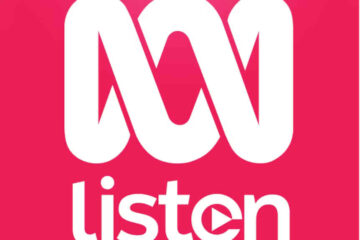Gershon Baskin shares with CNN that Both sides need to stick to what was signed and the mediators need to uphold that.
Let’s get some expert analysis from Gershon Baskin. He’s a former hostage negotiator and the Middle East director for the international communities organization. He joins us now live from Jerusalem. Sean, talk about a massive development. I was not expecting to be really talking about this particular development with you, but with your unique perspective as a negotiator. What is the prime minister doing by issuing this 11th hour statement? What does he hope to achieve? Is it just pleasing right wing members of his coalition or as a negotiator? Do you think this is an actual smart move that may insist further concessions?
No. I think what we’re seeing here is the difficulty of Hamas to produce the names that it intended to produce, because the hamas leadership outside doesn’t have full control of Gaza inside, and their people are not able to move around freely before they can give a list of names. Of the three women hostages who were released today. They need to verify that they can find them and that they are alive, because they promised that there would be three living women hostages who are civilians, not soldiers, released today. What prime minister Netanyahu is doing is a making sure that every single letter of the agreement is kept up. It would be a very bad start for this very fragile agreement. If, in light of a breach by one side, the other side agrees to move forward. Both sides need to stick to what was signed and the mediators need to uphold that. Both sides will implement what they obligated themselves. Unfortunately, we have a very bad history between Israel and the Palestinians of the Oslo peace process years when Israel and the plo signed six agreements and then breached all of them. There needs to be a commitment to implementing what each side took upon themselves.
And because you mentioned Hamas, and for viewers just joining us, let’s quickly remind that statement that’s just in to CNN with the Israeli military spokesperson insisting that Hamas, in their eyes, has not fulfilled its obligation. While you have Hamas essentially reiterating its commitment, saying that that technical field reason is to blame for not being able to provide that first batch of names of hostages back, though, to to what we were talking about. There were so many details that that held up these negotiations that were months in the making. Are you surprised to see something like a list of names would, by all accounts, put something that has so many lives on the line, on hold now well, it’s not only the list of names, it’s really all the details that are involved in this agreement.
But let’s face it, it wasn’t the details that were the problem in negotiating this agreement. There wasn’t a readiness on the side of Israel to end the war. And Hamas demanding a commitment to end the war, even though Netanyahu denies that there is a commitment by Israel to end the war. In the second 42 day phase, apparently promises have been given to Hamas by Egypt and Qatar, apparently by the trump administration. The incoming administration. And that’s what made the difference here in Donald Trump coming into the white house tomorrow is the magical formula that enabled or forced prime minister Netanyahu to make a deal that’s been on the table since may, right.
He and his envoy really been praised by many as somebody who are some people who are instrumental in all of this. Let’s talk about the families, which are certainly the crucial element here. These are real people who had hopes that they would at least three of them finally see their loved ones again. Now they’re back in this uncertain realm. So what are the families going through right now? Again, you an expert negotiator. You have sort of ridden this emotional roller coaster with families in the past. What would you tell them?
I would tell them to be patient. The Hamas announced that soon their military spokesperson, Abu Obeidi of the spokesperson of Qassim, the military wing of Hamas, will be making an announcement soon. We have to be patient. This is going to happen. Hamas wants this war to end. They want this ceasefire. Unfortunately, the parties have not negotiated the day after in Gaza situation of reality in which Hamas will no longer govern Gaza. That’s what needs to happen. But right now, the most urgent thing is to stop the shooting, to stop the killing and to get the hostages home. It should be noted that Israel recovered the body of an Israeli hostage last night in a military operation. This is someone who was killed in July of 2014, and his body has been held hostage all these years. So now we’re talking about 97 hostages that Israel is demanding to be returned. We don’t know how many of them are alive and how many are dead. And this is the most tragic thing for the families who are waiting not to know if their loved ones are coming back alive or dead, and if they come back alive, what is their situation? How could they be in any kind of normal situation, both mentally and physically, after so many months of being in captivity? Most of them probably in tunnels way underneath the ground of gaza, and no telling what expects them after they receive, they received by their families.
And then finally, as an expert, you have analyzed this deal. You’ve called it a bad deal, but a deal nonetheless. So what would you like to see in terms of the negotiations? If we get to that point on day 16, when Israel and Hamas return to the negotiating table, the first thing is I’ve already sent a message to Hamas to appeal to them to cut the time of the deal.
There’s no reason why phase one has to take six weeks. It can take two weeks or three weeks or four weeks, and I appeal to them also to make sure that phase two is much shorter. This is torture for everyone here and we need to cut the time. If I were in the negotiating room and I had the power to negotiate, this is what I would be seeking. I know that in September, when I talked to Hamas on behalf of families of hostages, they agreed to do this in three weeks, the entire deal. But they wanted to guarantee to end the war and Israeli withdrawal from gaza. And the Israeli side was not willing to do that. I must note that the people working for president Biden were also not willing to pick it up, because they were so invested in the deal that president Biden put on the table in the end of May. And this is really tragic because there was a much better opportunity on the table that could have been picked up by everyone. And it was let it was allowed to be passed on.
Gershon, you have been at the negotiating table. So that’s why we are lucky to have this insight from you. Thank you very much for sharing that. I know you’re going to


